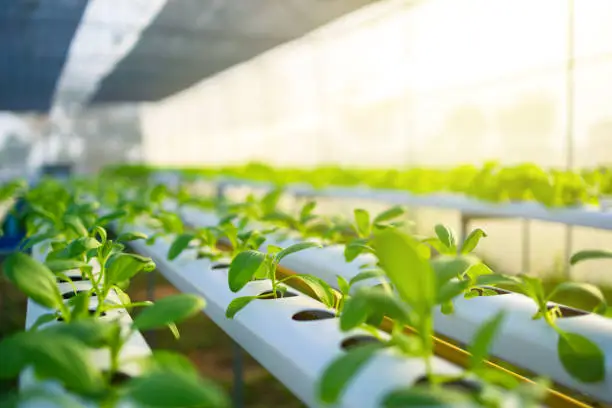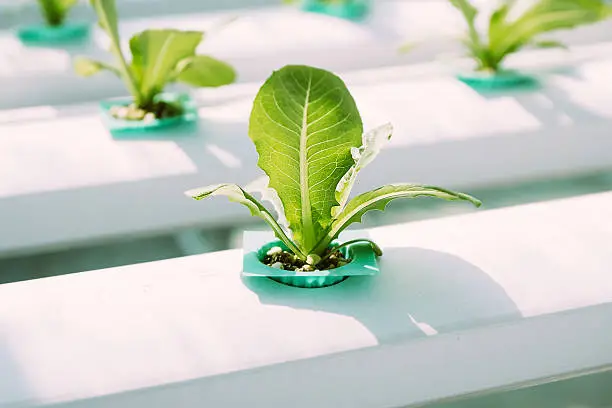What Is Vertical Farming?
Vertical farming involves growing crops in stacked layers inside controlled environments such as warehouses or indoor farms. Using hydroponics, aeroponics, and aquaponics, this method reduces land use, water consumption, and pesticide dependency while increasing yield per square meter.
Key Benefits
- Space Efficiency: Grow more food in less area by stacking plants vertically.
- Water Conservation: Recirculating systems reduce water usage by up to 90% compared to traditional farming.
- Year-Round Production: Controlled environment means no seasonal limitations.
- Reduced Transportation: Farms located closer to cities cut down on carbon footprint.
- Pest-Free: Indoor setups reduce reliance on chemical pesticides.
- AI Integration: Smart sensors and machine learning optimize growth conditions automatically.

Hydroponic Farming Systems
Growing plants without soil using nutrient-rich water solutions — ideal for lettuce, herbs, and leafy greens.

Aeroponic Farming
Using mist-based nutrient delivery to grow plants with even less water than hydroponics — ideal for high-density urban farms.

Aquaponic Farming
Combines fish farming with plant cultivation in a closed-loop ecosystem — using fish waste to nourish crops naturally.
Real-World Applications
Singapore Urban Farm Project
Skyp farms in Singapore produce fresh leafy greens in high-rise buildings using vertical farming and AI-powered environmental controls.
Berlin Smart Farm Initiative
Berlin’s ECF Farmsystems integrates vertical farming and aquaponics in repurposed city buildings — providing fresh food to urban consumers.
Leading Institutions in Vertical Farming
- Wageningen University – Netherlands: Researches optimal light spectra and nutrient flow for high-efficiency vertical farming.
- Sky Greens – Singapore: Pioneered vertical farming towers that rotate for natural sunlight exposure and efficient water use.
- ECF Farmsystems – Germany: Integrates aquaponics with vertical farming to maximize protein and vegetable output in urban spaces.
- NASA – USA: Tests aeroponic systems for future food production in extreme environments like space stations and Mars habitats.
- FAO – Global: Promotes vertical farming in densely populated countries to reduce pressure on rural agriculture.
Start Adopting Vertical Farming Today
Whether you're managing a small rooftop garden or planning a commercial urban farm, vertical farming offers scalable, sustainable, and profitable food production methods for modern agriculture.
Explore More Resources


